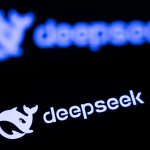This article explores the nascent field of AI-powered search engines, focusing on a new entrant named Pearl, which boasts a unique selling proposition: accuracy and legal defensibility. Unlike other AI search engines likened to high-performance sports cars, Pearl positions itself as a reliable Volvo, prioritizing safety and factual correctness. The author’s investigation into Pearl’s capabilities, however, reveals a more nuanced and occasionally frustrating reality.
The central premise of Pearl’s superiority rests on its purported compliance with Section 230, a legal provision shielding online platforms from liability for user-generated content. The CEO of Pearl’s parent company expresses confidence in their adherence to this protection. Yet, when queried directly, Pearl itself offers a less definitive answer, acknowledging the unique challenges AI-generated content poses to existing legal frameworks. This initial ambiguity sets the stage for a series of interactions that highlight both the potential and the limitations of AI-driven search.
The author’s attempts to verify Pearl’s Section 230 compliance through human experts connected via the platform yield even more perplexing results. The process of accessing human expertise proves convoluted, with initial inquiries redirected to a third-party platform called JustAnswer. This platform then requires users to input the AI-generated answer for verification, a cumbersome process further complicated by Pearl’s tendency to erase previous chat logs. The eventual interaction with a legal expert, described as a “legal eagle,” provides little clarity. Instead of offering concrete legal arguments, the expert diverts the conversation towards obscure references to shell companies and legal filings, ultimately attempting to upsell the author on a more expensive consultation package. This experience underscores the disconnect between the promise of readily available human expertise and the reality of navigating complex and often opaque systems.
Moving beyond legal inquiries, the author tests Pearl’s knowledge in other domains, including the history of WIRED magazine and the practicalities of refinishing kitchen floors. While Pearl provides serviceable answers in these instances, its performance remains underwhelming. The answers are deemed mediocre, scoring low on Pearl’s own “TrustScore™” metric. Furthermore, seeking human verification for these answers often leads to repetition of the same information previously provided by the AI, raising questions about the value proposition of human intervention. In the case of the kitchen floor refinishing query, the human expert ultimately validates the AI’s answer, but the author concludes that freely available online resources like YouTube and Reddit would likely offer equally valuable guidance without the associated subscription fees.
This exploration of Pearl reveals a recurring pattern: while the AI can generate seemingly plausible answers, the reliability and depth of these answers are often questionable. The promise of readily accessible human expertise to validate or enhance these answers frequently falls short, either due to convoluted processes, unclear qualifications of the experts, or the simple repetition of the AI’s original output. The reliance on a third-party platform like JustAnswer for expert connections further complicates the user experience and raises questions about the seamless integration of human and AI knowledge within Pearl’s ecosystem.
The author’s experience with Pearl underscores several crucial challenges facing AI-powered search engines. Firstly, the legal landscape surrounding AI-generated content remains ambiguous, and even platforms explicitly designed for accuracy struggle to navigate the complexities of Section 230 compliance. Secondly, the integration of human expertise into these platforms presents practical and logistical hurdles, often resulting in a frustrating user experience. Finally, the value proposition of these platforms, particularly in the face of freely available online resources, remains unclear. While Pearl’s emphasis on safety and accuracy is commendable, the actual implementation reveals a gap between aspiration and reality, leaving users questioning whether the promised benefits outweigh the costs and complexities. The author’s experience suggests that while the technology holds promise, AI-powered search engines still have a long way to go before they can truly deliver on their potential.



